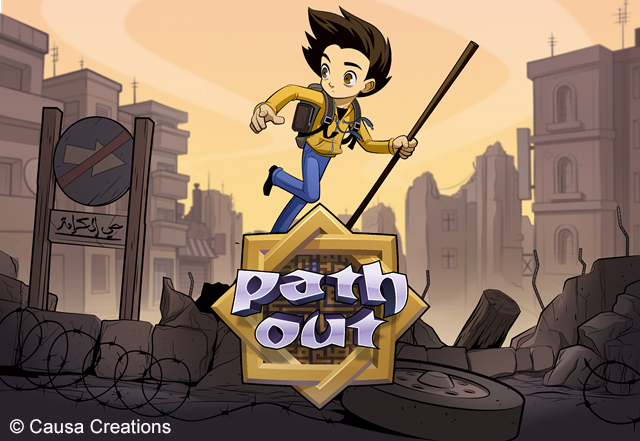“More communication, please!”
Abdullah Karam im Gespräch mit Anita Moser über seine künstlerische Arbeit, das Potenzial von Computerspielen und Salzburg als Ort kultureller Teilhabe und Produktion
Was it easy for you to get started here in Austria, in Salzburg?
I was young. I hadn’t experienced that much in my life. Everything I have done was playing video games and learning about the western culture. So I knew more about the western culture than about my own, basically. When I came here, it was not that much of a big culture shock. I was 19 and I hadn’t experienced much about communication or social life or anything else. I was like a kid, a blank page: everything was unknown, new. I learned fast. I got adapted soon. I got new chances in Salzburg and started chasing my dreams.
Here in Austria chasing your dreams – even if it is risky – is not a problem. You follow your dreams, you show your art if it’s what you are passionate about. In Syria, you better forget about that and become either an engineer or a doctor to earn a lot of money.
As a kid, people asked me “What do you want to be in the future?” In Syria, kids say “I want to be an engineer”, “I want to study English”, “I want to write”, “I want to be a doctor”. I was the only one who said “I want to make games” and I insisted on that. People thought I was crazy and told me “You will never make it”. The first time we – me and the team and all the creators – won with PathOut at a festival in Vienna, I was crying and I nearly could not stop it because of the flashbacks. People had told me that I would never make it, and in this moment, I was proving them wrong – I was involved in the industry and made a name of myself with. Those tears I cried were the proudest tears of my life. I went against everyone to fight for my passion, even against my parents. I hated schools, I didn’t want to go there – and that’s another subject we should talk about, because my dream is to change the education system.
There is an undeniable connection between education and the possibilities for participating in cultural life and in society. What would you like to change in the education system?
I think the education system has not been proven or developed much in the last hundreds of years. It has more or less stayed the same. The way I want to change it is to increase practice and integrate interactive media. “Serious games”, for example, are made to teach you something. They enable you to experience and feel something, as if you have experienced it yourself and thus can change your perspective. That’s what I would like to establish in schools, so that people can learn by themselves. Learning a language is a good example: I have learned English and some of my German through games – and only games. Learning a new language is pretty hard and frustrating, too, but with the games, for me, it was fun.
With games, we can have fun and learn something new – with passion, something we don’t have that much of in these days, or we have lost in a way. Kids always use their tablets; they have access to everything anytime. But when they come to school, they get locked into just one subject. You can’t take their freedom away. The freedom to be interested in different topics at the same time should also be part of the education system. Let’s imagine an exam, where you have to beat the dragon. But it’s not a dragon – it’s like a test you have to take, and when you fail, you just have to retry and not wait a whole year.
Anita Moser, Abdullah Karam ( 2018): “More communication, please!”. Abdullah Karam im Gespräch mit Anita Moser über seine künstlerische Arbeit, das Potenzial von Computerspielen und Salzburg als Ort kultureller Teilhabe und Produktion . In: p/art/icipate – Kultur aktiv gestalten # 09 , https://www.p-art-icipate.net/more-communication-please/


 Artikel drucken
Artikel drucken Literaturverzeichnis
Literaturverzeichnis